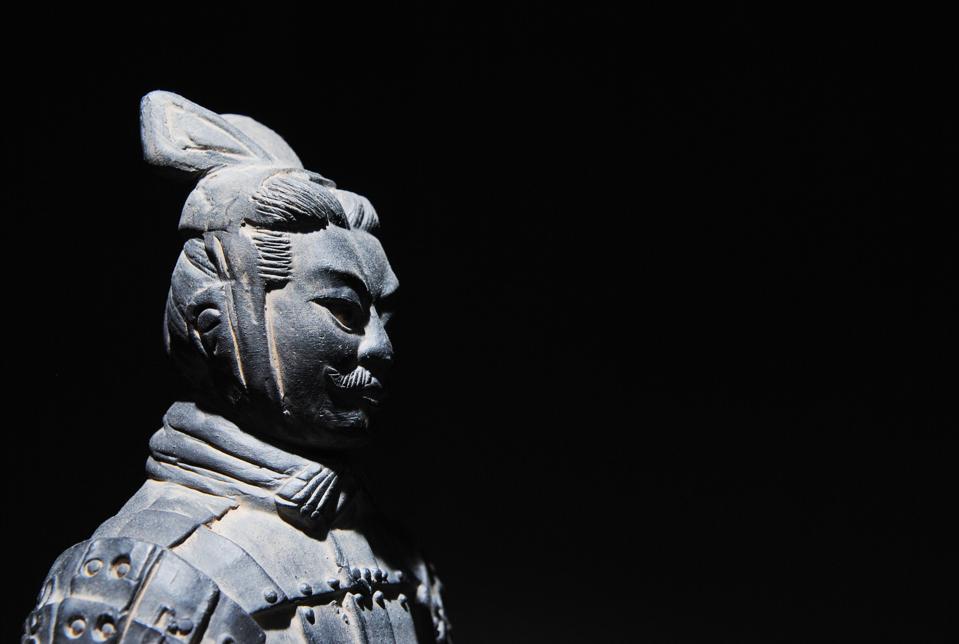Introduction:
Niccolò Machiavelli (1469–1527), a towering figure of Renaissance political thought, bequeathed to the world a philosophy stripped of idealism, centered on effectiveness over morality. In works such as The Prince (1513) and Discourses on the First Ten Books of Titus Livy (1517), he unpacks the mechanisms of power, virtù (virtue), and fortuna (fortune), offering a manual for rulers in a chaotic world.
Although his focus is political, his principles transcend the state sphere, shedding light on strategies for negotiation in business, diplomatic, and personal contexts. This article analyzes how Machiavellian ideas—such as the primacy of realism, the management of perception, and the balance between coercion and consent—can be applied to the art of negotiation, exploring both their tactical potential and ethical dilemmas.
Machiavelli and Negotiation: Debunking the Win-Win Utopia
Machiavelli starts from a raw premise: “Men forget more easily the death of their father than the loss of their patrimony” (The Prince, Ch. XVII). This starkly realistic view of human nature challenges collaborative negotiation models (like the Harvard Negotiation Project), proposing that success depends on understanding hidden interests, manipulating perceptions, and, when necessary, wielding power.
Key Principles and Their Negotiation Translation:
- Virtù (dynamic virtue): the ability to adapt to circumstances, combining cunning, strength, and persuasion.
- Fortuna (opportunity): the ability to seize unpredictable openings, such as crises or shifts in an opponent’s power.
- Ethical Realism: prioritizing outcomes over principles, without inciting widespread hatred.
Power as the Central Currency: Lessons from Chapter XVII
In his analysis of whether it is better to be loved or feared, Machiavelli concludes: “It is much safer to be feared than loved […] but one must avoid being hated.” Applied to negotiation, this can be interpreted as:
- Calculated coercion: using credible threats (e.g., economic sanctions) to force concessions, but without causing lasting resentment.
A historical example is Henry Kissinger’s actions during the Vietnam peace negotiations (1968–1973), where he combined massive bombings (Operation Linebacker II) with dialogue offers, pushing Hanoi to accept several unfavorable terms.
A recent corporate example is Elon Musk’s behavior when he threatened to pull Tesla out of California during the pandemic to negotiate health-related exemptions, projecting firmness without fully alienating authorities.
The Negotiator’s Virtù: Adaptability and Cunning
For Machiavelli, virtù is not goodness but effectiveness. In negotiation, this implies, in Machiavelli’s own words:
- Lion and fox behavior: “The prince must be a fox to recognize traps and a lion to frighten the wolves” (The Prince, Ch. XVIII).
- The Fox: must detect lies, stalling tactics, or hidden information from the opponent.
- The Lion: must show strength at key moments, such as breaking off talks if progress stalls.
A practical case is Steve Jobs in the 2006 negotiation with Disney to acquire Pixar: he acted like a fox by exploiting Disney’s creative dependence, and like a lion by demanding a record price and autonomy for Pixar.
Fortuna: Creating Opportunities in Uncertainty
Machiavelli compares fortune to a river that, though destructive, can be channeled with dikes. Interpreted in negotiation, this means:
- Preparation for the unpredictable: being able to develop varied alternatives and contingency scenarios.
- The ability to exploit others’ crises: the fall of Lehman Brothers (in 2008) allowed Bank of America to negotiate the acquisition of Merrill Lynch at a reduced price, taking advantage of the rival’s desperation.
- Knowing how to create artificial crises: Machiavelli suggests that a leader can “fabricate enemies” to unite allies. For example: companies that leak rumors of hostile takeovers to pressure resistant targets.
Perception vs. Reality: The Theater of Negotiation
Machiavelli is a precursor to the theory of strategic communication: “Men judge more by their eyes than by their hands” (The Prince, Ch. XVIII). In negotiation, this means:
- Managing the image: projecting power even in weakness. A clear example is when Egyptian President Nasser nationalized the Suez Canal in 1956, exaggerating his military capacity to dissuade an immediate invasion.
- Performing displays of strength: using non-negotiable deadlines, large teams, or luxurious venues to intimidate or impress.
- The performative contradiction: showing flexibility in public and firmness in private (or vice versa), confusing the opponent.
Machiavellian Ethics: Does the End Justify the Means?
The central dilemma of applying Machiavelli to negotiation is his apparent amorality. However, he distinguishes between cruelty “well used” (limited, strategic) and “poorly used” (arbitrary, counterproductive).
An example of cruelty well used can be seen in Lee Iacocca’s firing of 15,000 employees to save Chrysler (in 1979), a painful but necessary measure that allowed for debt renegotiation and revived the company. On the other hand, an example of cruelty poorly used is Enron’s management hiding information in negotiations with shareholders, destroying their credibility and leading to bankruptcy.
Some Case Studies: Machiavellianism in Action
a) Brexit Negotiations (2016–2020)
- Virtù: English Prime Minister Theresa May failed to adapt to internal factions (lion without cunning). Boris Johnson succeeded by using inflexible deadlines (Art. 50) and nationalist rhetoric (fox and lion). Nonetheless, while it is important to highlight the use of resources we are analyzing, this does not mean a final judgment on the results, which have created a significant divide among the British, Scottish, Irish, and Gaelic populations.
- Fortuna: Prime Minister Boris Johnson leveraged public fatigue with the European Union to force a minimalist agreement.
b) The Samsung vs. Apple Case (2011–2018):
- Perception: Apple sued Samsung for copying designs, not to win in court (it only received $539 million), but to project strength and deter future imitations.
- Ethical Realism: Both business conglomerates held secret parallel negotiations, prioritizing profits over principles.
Limits and Risks: When Machiavellianism Fails
- Overestimation of one’s own power: The invasion of Iraq (in 2003) was based on rigged negotiations about weapons of mass destruction, destroying the credibility of the U.S.
- Underestimation of resentment: Uber employed aggressive tactics (e.g., operating illegally in cities), achieving short-term gains but generating punitive regulations in the medium and long term.
- Contextual blindness: Jeffrey Epstein used his virtù to negotiate impunity with elites, but his lack of ethics led to his downfall.
Machiavelli in the Digital Era: New Territories, Old Tactics
- Artificial Intelligence and Data Manipulation: A striking case was that of companies like Cambridge Analytica, which used psychological profiles to negotiate electoral influence, updating the Machiavellian “fox.” Due to space limitations, we cannot fully develop this particularly complex case where Cambridge Analytica is far from the only responsible party, but it serves as a clear example of modern neo-Machiavellianism.
- Social Media as a Theater: Donald Trump negotiated policies through tweets, creating perceptions of consensus or instant crises. Elon Musk was very mindful of the power of this, eventually buying and paying a fortune for X (formerly Twitter).
- Cryptocurrencies and Fortuna: Sam Bankman-Fried (FTX) exploited the volatility of cryptoassets to negotiate alliances, until a lack of ethics led to his downfall.
Towards an Ethical Machiavellian Negotiation? Is This Possible?
Integrating Machiavelli into modern negotiation requires a set of filters to be applied:
- Long-term vs. short-term: As Machiavelli suggests, “A prince must think of victory, but also of the preservation of the state.” Translated into negotiation, this fundamentally means that agreements must be sustainable and consistent over time.
- Develop selective transparency: Reveal what is necessary to build trust, and hide what weakens the position.
- The Hobbesian balance: Recognize that, in a world of conflicting interests, a certain dose of realism is inevitable, but not enough. Decision-making now takes place in a very complex environment. This requires carefully weighed decisions, and in some cases, a marked dose of pragmatism, where it can be affirmed that Machiavelli’s principles are not obsolete at all, though in some cases, they must be adapted.
Conclusion: The Negotiator as a Modern Prince
Machiavelli does not offer comfortable answers, but rather an uncomfortable mirror: negotiation is, in essence, a power game where morality is just another resource, not an end. His legacy teaches that success requires mastering three arts: that of the warrior (to impose), that of the actor (to persuade), and that of the prophet (to anticipate). However, in an interconnected world, where reputations are globalized and mistakes are viral, the Machiavellian negotiator must remember another forgotten maxim: “Those who succeed are never judged by the means used, but only if they succeed” (Discourses, Book I). The question remains open: How much cynicism are we willing to tolerate in the name of success?
Hidden Dimensions and Controversies of Machiavellianism in Negotiation
To complete the analysis of applying Machiavelli’s ideas to negotiation, it is crucial to explore the less obvious dimensions of his legacy: his relationship with the dark psychology of power, his resonance in non-Western contexts, and his impact on contemporary negotiation ethics. This expansion delves into how Machiavellianism transcends political pragmatism, infiltrating psychological, cultural, and technological dynamics in modern dialogue.
The Dark Psychology of the Machiavellian Negotiator: The Power Triad
Contemporary psychology identifies the “dark triad” (narcissism, Machiavellianism, and psychopathy) as traits linked to manipulative negotiation tactics. Machiavelli anticipated this connection:
- Machiavellianism as a trait: Studies show that negotiators with high levels of Machiavellianism use more deceptive tactics, such as selective information or empty promises, to maximize benefits.
- Strategic narcissism: Projecting an image of superiority to dominate the table. A notable example is Elizabeth Holmes (Theranos), who negotiated multimillion-dollar investments by faking non-existent technological advances, exploiting others’ credulity.
- Functional psychopathy: Emotional detachment for making tough decisions. Example: Jack Welch (General Electric) fired 10% of employees annually (“rank and yank”), prioritizing efficiency over loyalty.
- Paradox: While these traits may achieve short-term victories, they corrode trust, which is essential for lasting agreements. As Machiavelli warned: “He who deceives will always find someone who will let himself be deceived” (Discourses, Book II).
Machiavelli in the East: Dialogues with Sun Tzu and Bushido:
Comparing Machiavelli with Eastern strategic traditions reveals convergences and divergences:
| Aspect | Machiavelli (West) | Sun Tzu (East) | Bushido (Japan) |
|---|---|---|---|
| Deception | Necessary tool | Supreme art (“All warfare is based on deception”) | Dishonorable, except in service to the lord |
| Ethics | Secondary to success | Effectiveness with harmony | Honor over results |
| Legacy | Individualistic pragmatism | Collective strategy | Hierarchical loyalty |
A very interesting transcultural example: when negotiating in China, companies like Amazon combine Machiavellianism (pressuring suppliers) with Sun Tzu principles (studying the legal environment), while avoiding tactics that harm “mianzi” (social honor).
Artificial Intelligence and Machiavellian Algorithms: Can a Machine Be a Prince?
Artificial intelligence is redefining negotiation with tactics inspired by Machiavelli:
- Algorithmic Negotiators: Platforms like Pactum use AI to close supply agreements, prioritizing efficiency over human relationships. In 2021, Walmart used this system to renegotiate contracts with suppliers, achieving savings of 3-5%.
- Data Manipulation: Systems like DeepMind develop algorithms that conceal critical information, emulating tactical deception.
- Ethical Dilemmas: If an algorithm maximizes profits by violating labor standards, who assumes responsibility?
- Dystopian Future: Will we ever see an “artificial virtu” capable of exploiting fortune in financial markets?
Machiavellian Education: How to Train a Modern Prince?
Many institutions are incorporating Machiavelli’s legacy into executive programs:
For example, in high-risk simulations: Some business schools like INSEAD use role-playing games where students negotiate under pressure, rewarding Machiavellian adaptability. In the field of situational ethics: Courses like “Power and Negotiation” at Harvard teach how to discern when cruelty is “well used.” The method – rarely practiced but extremely useful – of failure autopsies: Studying cases like the fall of WeWork (2019) illustrates the limits of Machiavellianism without real substance.
Machiavelli in the Shadows: Clandestine Negotiations and Espionage
The dark side of Machiavellianism flourishes in many secret negotiations:
- When practicing covert diplomacy: For example, the Oslo talks (1993) between Israel and the Palestine Liberation Organization (PLO) were conducted secretly to avoid sabotage, applying the principle “the end justifies the means.”
- In corporate espionage: In 2020, Google sued Uber for stealing Waymo’s trade secrets, revealing how companies use Machiavellian tactics to negotiate technological advantages.
- In some less reputable cases of cryptography and deception: Private currencies like Monero allow undetectable transactions, facilitating illicit businesses based on “the theater of perception.”
Final Reflection: Is Machiavellianism a Curse or a Necessity?
Machiavelli challenges our illusion of a world governed by justice and transparency. In negotiation, his legacy is an uncomfortable reminder: power is not exercised, it is negotiated. However, in a planet facing climate crises and global inequalities, the question persists: can humanity afford the luxury of cynicism?
As Machiavelli himself wrote: “He who wishes to be good among so many who are not will soon ruin himself” (The Prince, Chapter XV). Perhaps the answer is not to reject his realism, but to tame it with an ethic of collective responsibility. After all, even a prince needs a kingdom that endures.






0 Comments